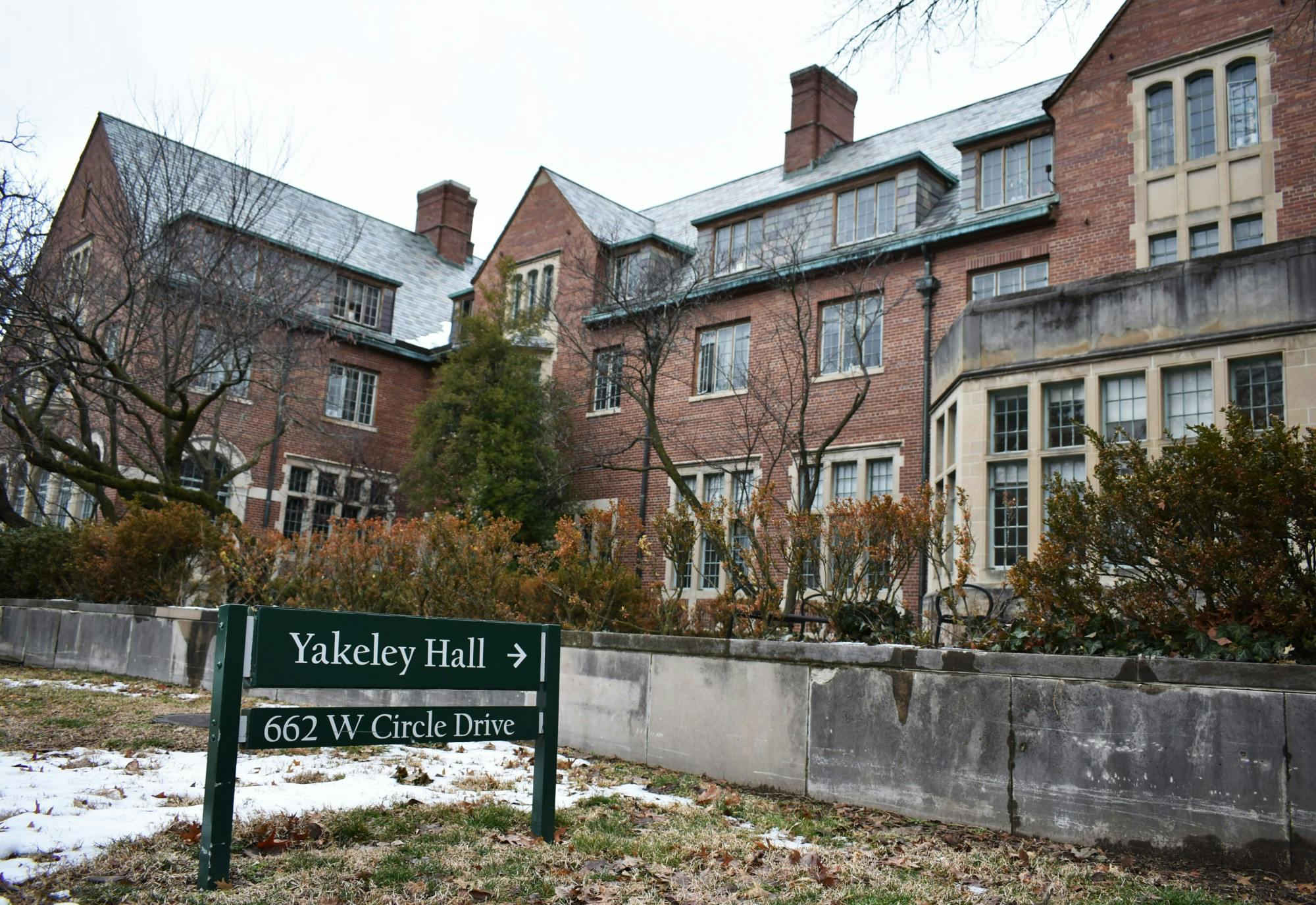In November 2021, following the disappearance of Grand Valley State University student Brendan Santo, Michigan State University faced safety concerns after it was discovered that the Yakeley Hall surveillance camera that Santo had walked by was not operating the night he went missing.
The camera was not broken. It had been taken offline weeks prior due to it using a Chinese computer chip banned by a 2020 federal law.
The Secure and Trusted Communications Networks Act of 2019 became law on March 12, 2020, aiming to prohibit federal subsidies from being used to purchase communication equipment that posed "national security risks."
Exactly a year later, on March 12, 2021, the Federal Communications Commission, or FCC, identified five Chinese technology companies as posing such risks. The list included: Huawei Technologies Co., ZTE Corp., Hytera Communications Corp., Hangzhou Hikvision Digital Technology Co. and Dahua Technology Co.
The Yakeley Hall camera, as well as a number of others on campus, was an aging analog device, and it required a converter to transform it into a digital format. The converter utilized a chip made by Huawei Technologies — one of the FCC's blacklisted companies.
Michigan State University receives funding from the federal government — and therefore was asked to replace the converter in early fall 2021.
Michigan State University Police Department inspector Chris Rozman said the university attempted to obtain new converters immediately upon getting the news.
“We were told by General Counsel to basically unplug, and we weren't able to use these analogs to digital converters,” Rozman said. “MSU immediately went out to try to source new analog to digital converters.”
They soon ran into another problem: A backed-up global supply chain.
Chief Communications Officer for Student Life and Engagement, or SLE, Kat Cooper said the delivery date for the replacement converters continuously got pushed back — something the department had struggled with all of fall semester.
“They would have a delivery date, they were delayed, we have a delivery date, they were delayed,” Cooper said.
In light of this issue, SLE and MSUPD began looking for alternative options. They found that they could have new digital cameras delivered much faster.
In response, SLE and MSUPD opted to fully replace all analog cameras with digital ones instead of waiting for the converters to arrive. However, this brought its own challenges.
"So finally we've just had to go to replacing the entire camera, which is a more expensive and time restrictive process," Cooper said. "But it's what needed to be done."
As of March 3, all analog cameras in both residence halls and MSU-owned apartments have been upgraded to digital. Auxiliary buildings are currently being upgraded.
In all, over 300 new digital cameras have been installed throughout campus, including both new installations and analog replacements.
The Secure and Trusted Communications Act was just one part of former U.S. President Donald Trump's trade war with China that began in 2018.
Associate Professor of International Business Ahmet Kirca said MSU's camera issues were just one example of the indirect effects such a war has on U.S. businesses and institutions.
“I'm sure there are lots of other companies out there who suffer from the unintended consequences of trade wars,” Kirca said. “That's how I would probably put the title of this: 'Unintended Consequences'.”
Support student media!
Please consider donating to The State News and help fund the future of journalism.
Discussion
Share and discuss “How a Chinese chip ban shut down a security camera at Yakeley Hall” on social media.







